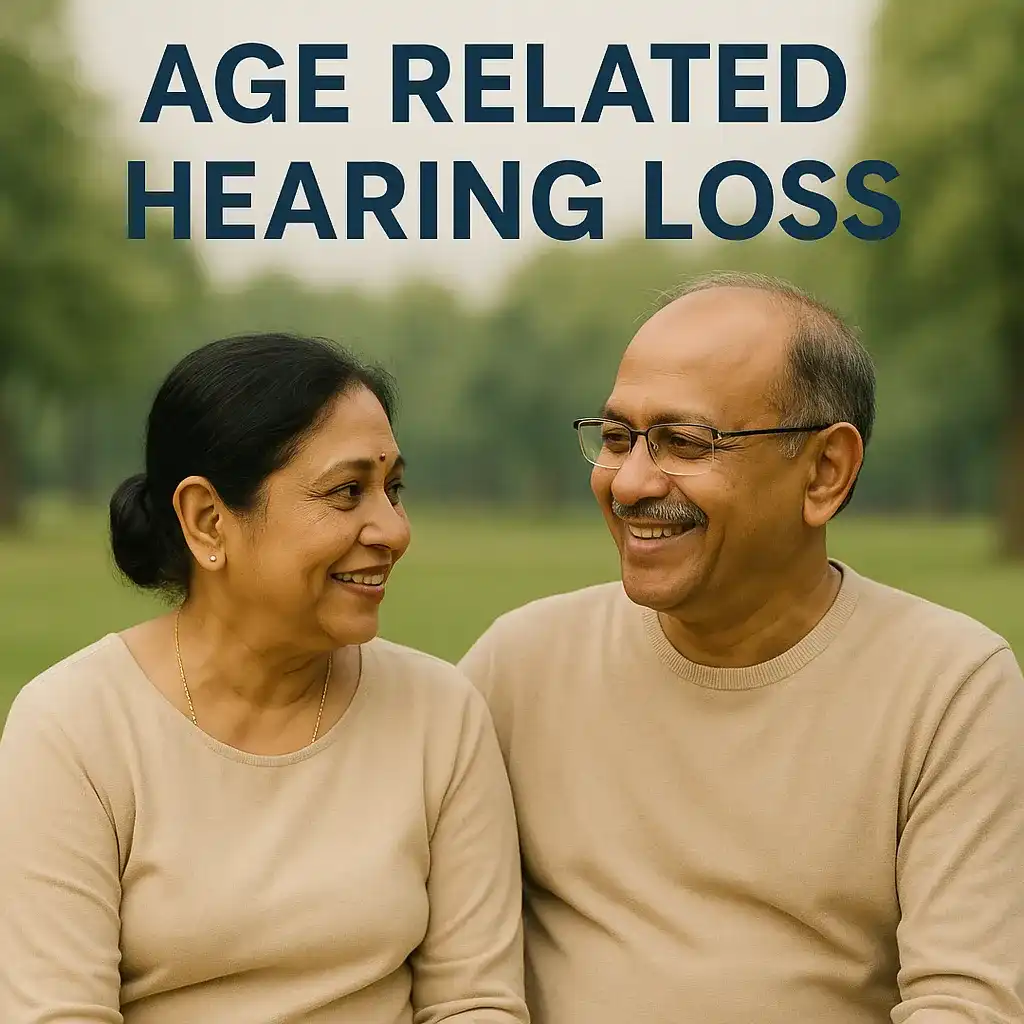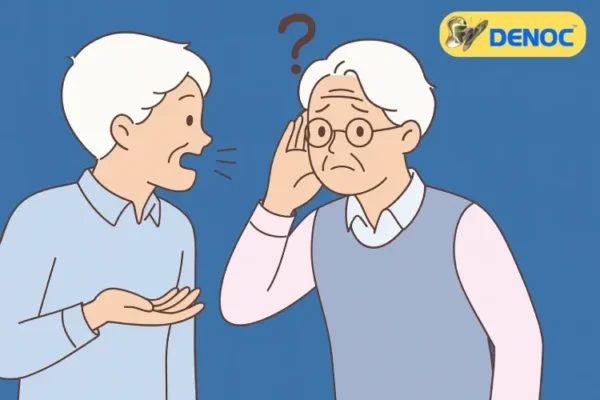? Do People Lose Hearing as They Age?
Yes, age-related hearing loss—medically called presbycusis—is one of the most common conditions affecting children, adults, and especially the elderly. It typically impacts both ears equally and progresses gradually, making it harder to notice in the early stages.

? Why Does Hearing Decline with Age?
As we age, several changes occur in our body—hearing loss is one of them. One of the primary reasons is damage to the inner ear hair cells that help detect and transmit sound to the brain. Once these hair cells stop working, they don’t regenerate—leading to permanent hearing damage.
? Other Contributing Causes:
- ✅ Prolonged exposure to loud noise
- ✅ Genetic predisposition or family history
- ✅ Poor blood circulation in the ears
- ✅ Chronic conditions like diabetes and high blood pressure
- ✅ Use of ototoxic (ear-damaging) medications
- ✅ Physical abnormalities in the outer or middle ear
? Common Symptoms of Age-Related Hearing Loss:
- ? Difficulty hearing high-pitched voices (e.g. women or children)
- ? Struggling to follow group conversations
- ? Trouble understanding speech in noisy environments
- ? Ringing or buzzing in the ears (Tinnitus)
- ? Needing to turn up the TV or phone volume frequently
- ? Asking others to repeat themselves often
- ? Talking louder than usual without realizing
- ? Trouble hearing clearly over the phone
?️ Real Experience
“I used to avoid social gatherings because I couldn’t keep up with conversations. After visiting Denoc, my hearing aids made all the difference. I feel included and confident again.”
– Meena R., Bangalore
? Treatment Options
The treatment approach depends on the severity and type of hearing loss. Many people benefit from modern digital hearing aids that are discreet, powerful, and Bluetooth-enabled. In some cases, medical or surgical treatments may be recommended.
? Take Action: Don’t wait until hearing loss starts affecting your quality of life. Schedule a visit with a certified audiologist or ENT specialist for a complete evaluation.


